Stylish patio doors can beautify a home, but can they survive the wintry months? And in contrast, can they keep your home cool in the humid summer months? Insulation is important for both hot and cold seasons as it prevents heat from escaping your indoor space in the winter and prevents hot and humid air from entering your home in the summer. We've researched some ways you can recalibrate your door insulation that can survive any weather.
Insulation keeps the temperature comfortable throughout the year. Here is how you can properly insulate your patio doors to keep your home at an ideal temperature:
- Invest in heavy drapes
- Vacuum your door track
- Add a layer of stripping for the winter
- Insert rubber compression strips
- Add an insulation kit
- Touch up the caulking
As the weather becomes more unpredictable, patio doors require more than the occasional check-ups especially when you need reliable insulation. Keep reading to learn more about these patio door insulation methods!
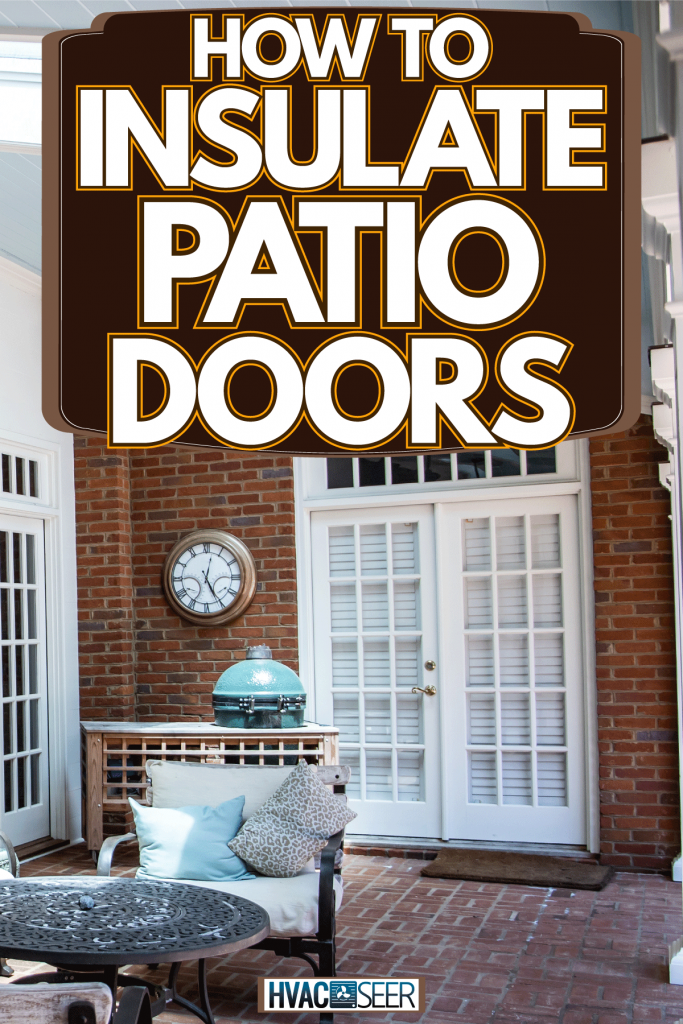
How to Insulate Sliding Patio Doors
Invest in heavy drapes, curtains, and blinds
This can prevent heat from escaping in the winter, and prevent light and heat from entering in the summer. A dark, heavy curtain works wonders when keeping comfortable in any weather.
Check out this insulated door curtain on Amazon.
Vacuum your door track
Debris and particles that come from outside cause the doors to be stilted, interrupting the sealing and nullifying your insulation.
Add a layer of weather stripping for the winter
This prevents bugs, light, and the elements from coming in. It is advisable to have this professionally done for maximum effectiveness.
Insert rubber compression strips
These are water-resistant adhesives ideal for keeping moisture out of your home in humid or cold months.
Check out these 3M adhesives on Amazon.
Add Insulation Kit
This old-school way of inserting plastic film is still an effective method of insulating doors and windows. Simply place the film on a clean glass window, secure using double-sided tapes, and blow-dry with a hairdryer.
Click here to see Duck kit on Amazon.
Touch-up the Caulking
Homeowning comes with constant tune-ups, and this is no exception. Faulty caulking leads to moisture and air leaks that come in through tiny gaps. Regular checking ensures that the caulking is in good shape.
Should You Fix Your Door Insulation?
Insulating your door ensures that it can withstand unpredictable weather changes and keep your home comfortable. If you think you may need to augment your system, we listed the telltale signs that point to a need for an upgrade.
Check out this article to know when it's time to fix your insulation.
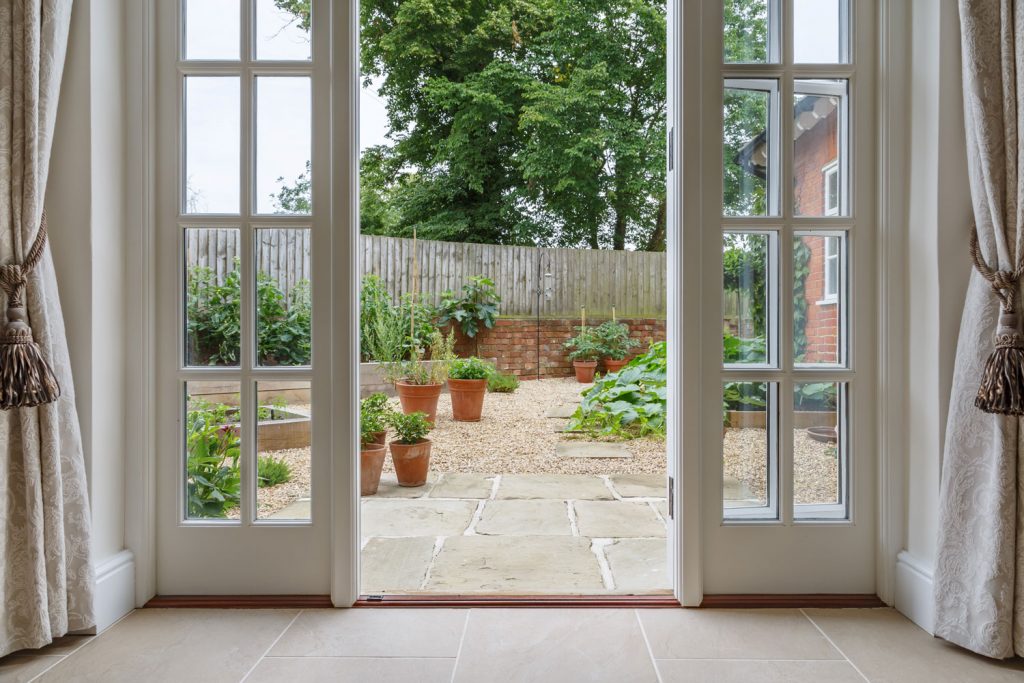
Cold walls or floors in the winter
This is usually caused by tiny gaps and cracks on the door. This defeats the purpose of any heating system in your home since the problem is rooted in the entryway itself. This is why weather stripping is important.
Higher heating bills in the summer
You consume more energy when the HVAC system works overtime to cool your home. When there is poor insulation, heat comes in more easily which your cooling system works hard to fight off.
Irregular heat levels even without customizing
Some cooling systems make it possible for you to customize the temperature in each zone, but it's different when the inconsistency is caused by poor insulation. Some rooms feel stuffier than others, while other rooms can be cold but humid.
Doors have no structural integrity
Insulation is negated when the door is not properly installed in the first place. You need to make sure that the door has already a sturdy structure that can support insulation.
You have a non-insulated glass
If you have a single-paneled glass door, it is better to replace it with insulated glass. Not only does it ensure comfort and convenience, but it also makes the entire system cost-effective.
Which door can withstand any weather?
If you are in the market for newer doors that can effectively provide better insulation, you may want to consider the following factors.
Fiberglass Doors
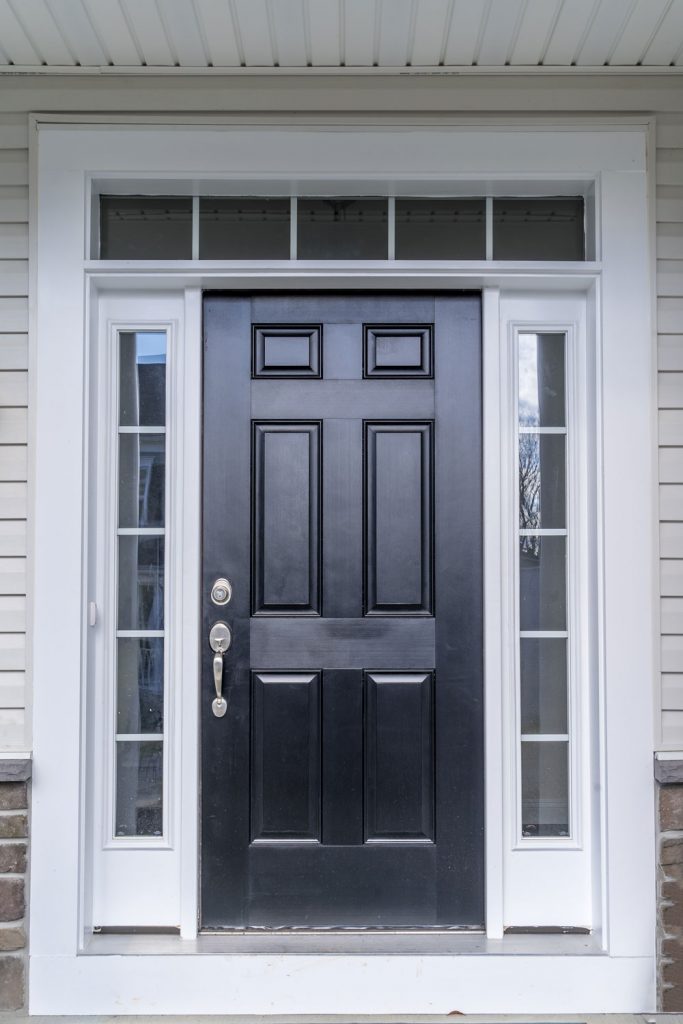
Fiberglass is famous for withstanding moisture and being resistant to dents and scratches. It takes up to twenty years before it requires any repairs, making it low-maintenance and cost-effective. It also barely reduces or expands in the middle of extremely cold or hot weather, making it an ideal door to build with solid insulation.
Learn more about how long fiberglass insulation lasts in this article.
Vinyl Doors

Vinyl doors are popular for their durability, having been known to survive several years even in harsh weather conditions. These doors are resistant to water and chemicals which contribute to their anti-corrosive properties.
Since vinyl doors are hollow inside, they are sealed tight with insulating properties. All factors considered, this door is ideal for houses in areas plagued by unstable weather conditions.
Steel Doors
Many industrial-styled homes now opt for a steel door. Not only does it improve security, but it is also made with a thermal break which greatly insulates a home, even competing with fiberglass.
A typical steel door should be made with two pieces of steel which save room for a thermal break. This break, true to its namesake, stops the heat from transferring outside in the winter, or inside in the summer.
Wooden Doors
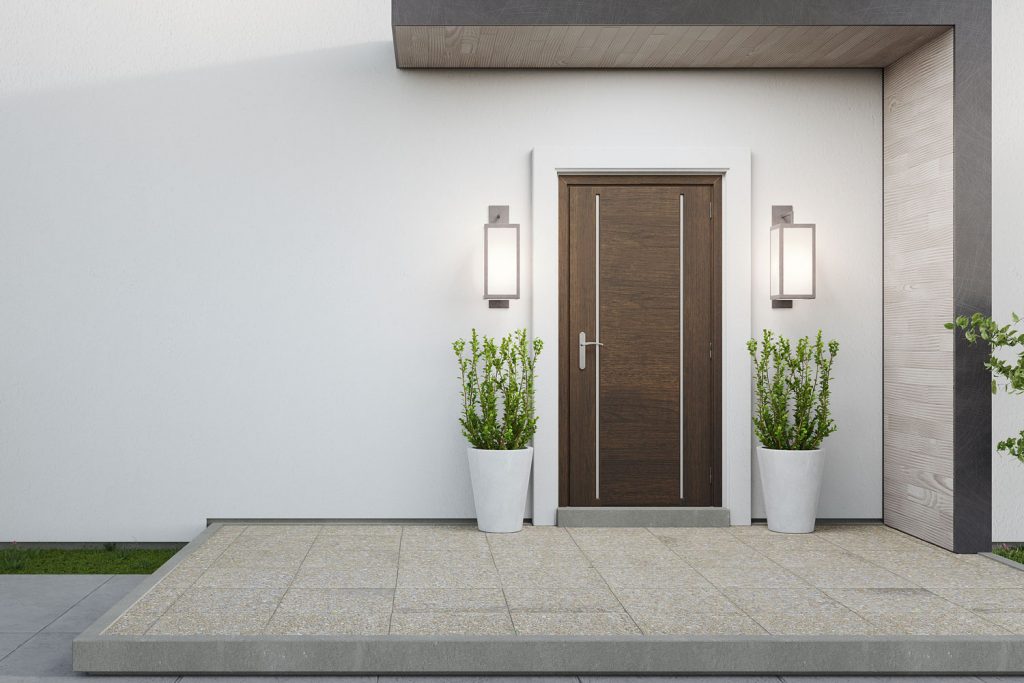
Although some consider wooden doors to be dated, this classic can still be a good choice for insulation. Solid-core wood doors contain natural insulating properties which fare better than uninsulated metal and fiberglass doors. However, one disadvantage of having a wooden door includes its affinity to moisture which can cause mold to grow.
Sliding Glass Doors
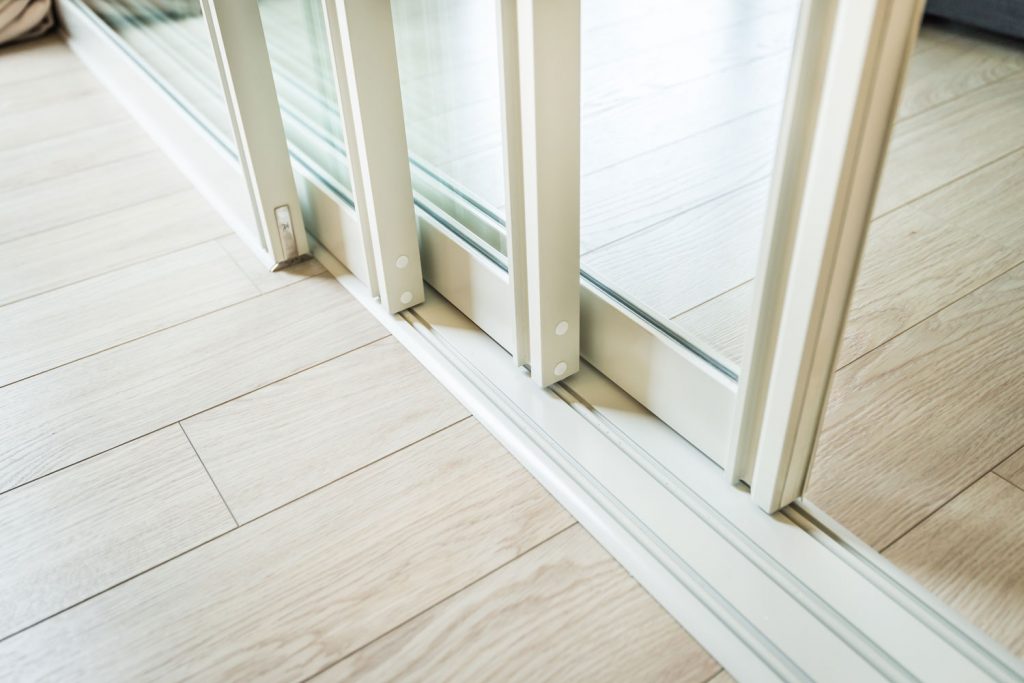
Modern sliding glass doors are the most durable and energy-efficient, as certified by Energy Star. With proper maintenance, they can last up to 30 years.
An excellent sliding door should have double or multiple-panes, has foam insulation, and low e-coating. Another name for low emissivity, this coating contains tiny particles that reflect light either outside or inside depending on the season.
French doors
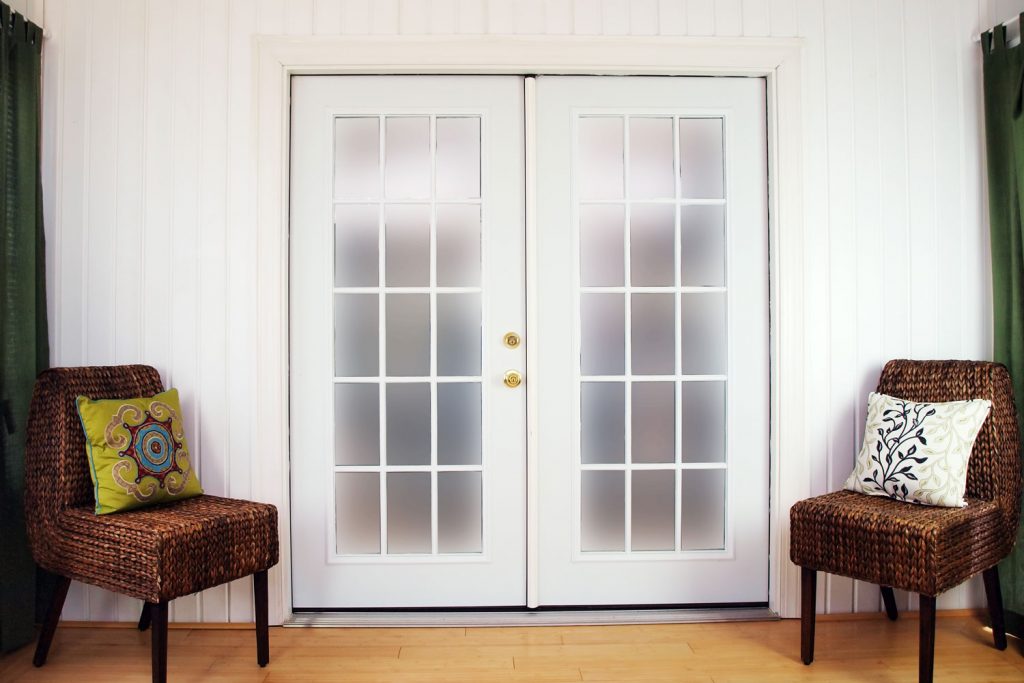
French patio doors, or swinging doors, open inward and outward. They are usually installed in more traditional houses, their architecture matching old french eclectic style homes.
Old models of French patio doors have poor insulation. However, modern solutions enabled these aesthetically-pleasing doors to keep up with insulation demands.
Modern models now include dual-pane glass, double-glazing, and insulating materials, making them more energy-efficient. Many older models need to be replaced since they most likely do not have these innovations.
What Should You Consider When Choosing a Patio Door?
Design
We want our home to feel welcoming. The design does not only refer to aesthetics but also its overall suitability in our homes. Choose doors that are not only space-saving but also match the architecture of the house. Make sure the functionality is up to standard as it will determine the level of comfort you will have in your home.
Weather Conditions in your area
As with any home-related decisions, weather conditions play a critical role in deciding the type of door to install. For example, wooden doors do not fare well in misty and rainy areas. Old French doors might not be the most ideal in areas experiencing harsh winters but work best in tropical and windy places.
Sliding glass doors would be an excellent choice for places under unpredictable weather. Just make sure whichever door you choose is insulated properly.
Safety
Of course, you will need to figure out which door can provide you with the best security. Steel doors, fiberglass, and anything with multi-layer panels can secure you from harsh elements. Insulated metal doors and fiberglass may be your best bet in this case, since they are made with the most durable materials.
Budget costs
Wooden doors are the most expensive in value and maintenance. Insulation is up to standard. Steel doors cost even more, although their maintenance might be lower, along with its insulation which is already sealed inside. Fiberglass doors and sliding glass doors are the most cost-efficient --the prices are reasonable, and it would take years before you will need repair.
Energy Efficiency
You will need to determine which door will insulate your home best and save you money from monthly bills. If you live in warm areas, you might want doors that would support airflow and a cool temperature such as french doors and fiberglass doors. This will save energy from your HVAC units.
If you want to save on heating costs, make sure your doors are not at risk of getting moldy and murky and are installed properly with insulators sealed inside.
Is Your Insulated Door Energy-Efficient?
Insulating your door means you will need to familiarize yourself with U-values. The U-value describes the building's ability to retain heat --simply called in the industry, thermal performance. The rule of thumb is the lower the U-value, the better because the low number represents an excellent thermal performance.
Make sure to look at the door's U-value when considering a new purchase or recalibrating your door's insulation to ensure energy efficiency.
Conclusion
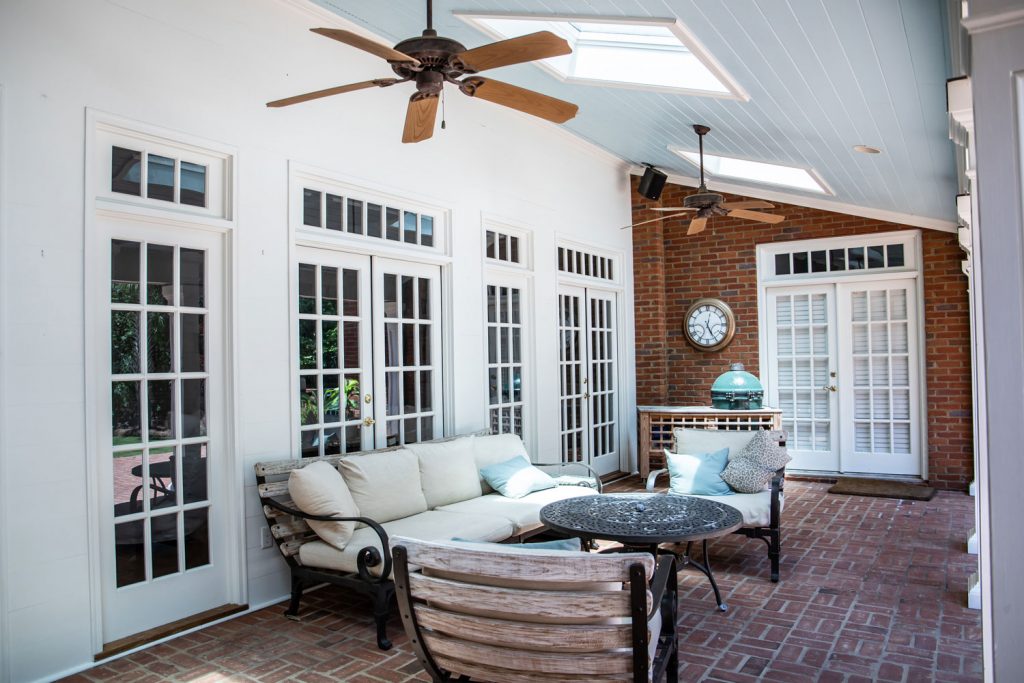
As the weather becomes more unpredictable, insulating your patio door can provide you with comfort and security. There are various types of doors that suit different conditions, and it is important to determine which one will serve to your maximum benefit.



